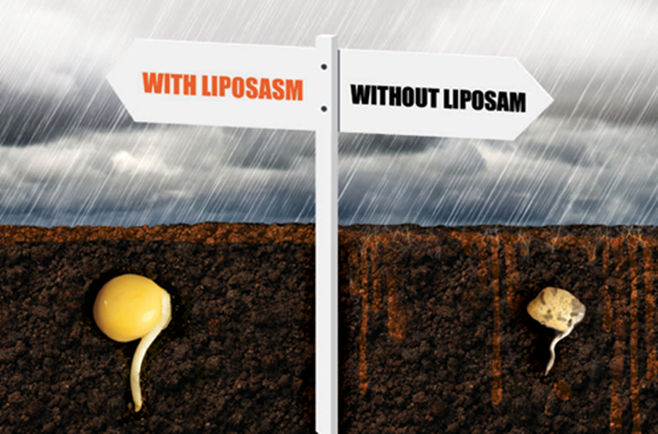The use of soil herbicides is an important method of weed control at the beginning of cultivation. The unwanted plants compete for water, light and nutrients in the first stage of cultivation. Failure to control weeds can cause a loss of as much as 20-50% if not handled properly.
Research and field experience show that the effectiveness of soil herbicide use is related to soil moisture content. In the case of dehydration of the soil, the soil herbicide can lose its properties due to evaporation, weathering or decomposition by UV radiation. Too much moisture, caused by heavy rainfall, for example, also has a negative effect because it causes the "film layer" of the soil herbicide on the soil to wash out unwanted into the seedbed. This can have negative effects on the seedlings of most crops. In addition, leaching of the soil herbicide also unnecessarily affects soil life.
One of the most effective solutions to these problems is the adhesive/fluidifier Liposam®. This is a natural adhesive based on biopolymers. The presence of several functional groups of polysaccharides in the composition of Liposam® ensures retention of the working solution on the soil surface and prevents the herbicide from leaching. In addition, Liposam also improves the effectiveness of the herbicide under most conditions.
When there is a high probability of heavy rainfall as has occurred in almost all climate zones in recent years, the application of Liposam® is recommended in combination with herbicides to prevent them from leaching to the roots and damaging the crop.

